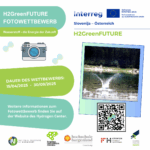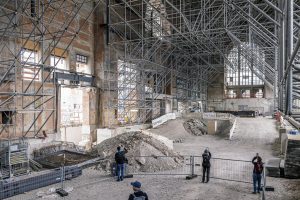About us
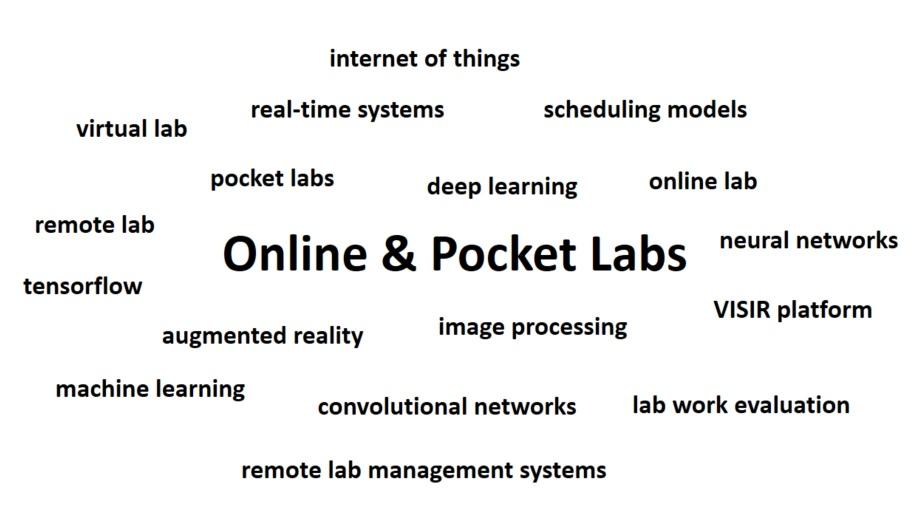
The myLAB research group aims to conduct research and development in the field of practical engineering training with the help of laboratory equipment. The methodology and the equipment used should be modern, innovative, flexible and personalized; hence the name “myLAB”. An essential cornerstone of this concept are online laboratories, which enable self-directed, exploratory learning and are available worldwide around the clock.
News
16. May 2025
»Hydrogen – Energy of the Future«
The aim of the competition is to showcase the importance and potential of hydrogen as a clean and sustainable energy source through the lenses of your cameras. The photo competition is being implemented within the framework of the Interreg Slovenia-Austria
international project H2GreenFUTURE.

1. January 2024
Merger and reestablishment.
On January 1, 2024, the ABMS and OuPL research groups were merged to form the myLAB research group. The aim of the new group is to conduct research and development in the field of practical engineering education with the aid of laboratory equipment.
Activities

2nd Innovation workshop of the OnLabEdu project in Graz.
Kick-off meeting of the EDU-CIRC project in Bruneck/South Tyrol.
Kick-off meeting of the NEXT project in Bratislava.
Presentation of the eye model at the ICL 2023 in Madrid.
Participation in the exp.at 2023 in Évora/Portugal.
Participation in EDUCON’23 in Kuwait.
Organisation of a workshop at the ICL 2022 in Vienna on the topic ‘Online Laboratories for School Education in Austria’.
Organisation of EDUCON’21 in Vienna (due to the COVID situation online).
Master’s student Serhii Alokhin from the National Technical University Kharkiv is spending a semester at the Carinthia University of Applied Sciences as part of the Erasmus+ project ICMUKRAINE.
Participation in ICL (Interactive Collaborative Learning) conference in Kos (3 papers).
Approval of the dComFra project and 4 other ICM projects with Albania, Armenia, Bosnia and Ukraine.
Completion of 4 Master’s theses and 5 Bachelor’s theses on the topics of the research group, for example machine learning and parallel computing.
Participation in ICELW (E-Learning in the Workplace) conference in New York (1 paper).
Participation in the MIPRO conference in Opatija (1 paper).
Participation in EDUCON (IEEE Global Engineering Conference) in Santa Cruz de Tenerife (2 papers).
Participation in REV (Remote Engineering and Virtual Instrumentation) conference in Düsseldorf (4 papers).
Master’s student Valentyn Zaleskij from the National Technical University Kharkiv is spending a semester at the Carinthia University of Applied Sciences as part of the Erasmus+ project ICMUKRAINE.
Thomas Klinger teaches courses at the partner university National Technical University Kharkiv as part of the Erasmus+ project ICMUKRAINE.
Projects
ongoing projects
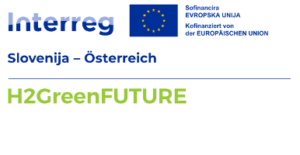
PROJECT NAME: Addressing the challenges in the process of developing hydrogen technologies to transition to a carbon-neutral society in Slovenia and Austria
PROJECT DURATION: 01.12.2023 – 30.11.2026
PROJECT BUDGET: 1.341.271,09€
ERDF CO-FINANCING 1.073.016,87 EUR
SHORT PROJECT DESCRPTION:
H2GreenFUTURE is a project aimed at addressing the challenges associated with developing hydrogen technologies for the transition to a carbon-neutral society in Slovenia and Austria. The project recognizes the increasing impact of climate change, emphasizing the need to reduce greenhouse gas emissions and adapt to low-carbon technologies like hydrogen.
Key aspects of the project include the development of pilot infrastructure for hydrogen technologies, fostering skills development in companies and among students, and building a comprehensive innovation ecosystem with a stable regulatory framework. The Quadruple Helix approach, involving government, industry, academia, and civil society, is central to the project’s strategy.
The project activities focus on three pillars: research and innovation, knowledge and competences, and the introduction of test mechanisms to adapt legislation for disruptive innovation. It includes a cross border H2 demo – pilot project to identify barriers in the cross-border area, a regulatory sandbox to establish a legislative framework, and initiatives for awareness raising and knowledge transfer.
H2GreenFUTURE aligns with the roadmap for hydrogen technologies in Slovenia and Austria Interreg region, building on the groundwork laid by the H2GreenTECH project (Interreg SI-AT). Continuous cross-border cooperation, innovative approaches such as pilot demonstrations and regulatory sandboxes, and a blend of digital and traditional education methods underline the project’s commitment to fostering hydrogen technology development in the region.
Main results of H2GreenFUTURE project are:
- Cross-border H2 demo-pilot project and Roadmap on technological cross-border H2
cooperation
- H2 Regulatory Sandbox simulation and H2GreenFUTURE Policy Brief
- Pilot implementation of the H2GreenFUTURE training
PROJECT CONSORTIUM:
- NIC – Kemijski inštitut / National institute of Chemistry, Lead partner
- ŠGZ – Štajerska gospodarska zbornica / Styria Chamber of Commerce and Industry
- FB – Forschung Burgenland GmbH / Research Burgenland
- TU Graz – Technische Universität Graz / Graz University of Technology
- CUAS – Fachhochschule Kärnten GmbH / Carinthia UAS – non-profit limited liability company
- RDAZ – Regionalna razvojna agencija Zasavje / Zasavje Regional Development Agency
The H2GreenFUTURE project is co-financed by the European Regional Development Fund as part of the Interreg Programme Slovenia-Austria.
NEXT is the Erasmus+ KA2 CBHE project started on November 1, 2023; it finishes on October 31, 2026.
The project is being carried out by the consortium:
- Slovak University of Technology in Bratislava (STUBA) – coordinator
- Czech Technical University in Prague (CVUT) – consortium member
- Carinthia University of Applied Science (CUAS) – consortium member
- Dublin City University (DCU) – consortium member
- Igor Sikorsky Kyiv Polytechnic Institute (ISKPI) – consortium member
- Odesa Polytechnic National University (OPNU) – consortium member
- Ivan Franko National University of Lviv (IFNUL) – consortium member
- Cherkasy State Technological University (ChSTU) – consortium member
- Accenture (ACT) – associated partner
- Atos IT Solutions and Services in Slovakia (ATS) – associated partner
The objective of the NEXT project is to narrow the existing gap between the rapid pace of digital transformation, and the training of specialists from different fields, especially those that are not related to IT. The issue is that at present the aforementioned specialists are not sufficiently skilled to efficiently work with digital technologies and tools, and to understand possible pitfalls in their use, including mental health issues and legal matters.
- The specific objectives of the NEXT project include the following.
- Educating students of different specialities on the digital technology, soft skills, legal aspects, and mental health maintenance to help them in getting ready for changing requirements of the modern job market towards next-generation ‘digital’ jobs.
- Training academic staff to support learners with qualified coaches who can assist them in their studies for digital transformations.
- Developing innovative learning resources in line with the newest trends in digital technologies.
- Enhancing students’ teamwork as well as improving their digital skills through carrying out student projects contest.
- Establishing advanced multimedia laboratories in Ukrainian universities, which will support students by providing them an opportunity of gaining practical experience in using the newest hardware and technologies.
The project’s work plan includes five work packages:
- WP1 Project management
- WP2 Analysis of ‘digital’ labour market requirements and ‘digital’ employee’s needs
- WP3 Capacity building for learner-centred informal ‘digital’ education
- WP4 Learning resources testing and validation
- WP5 Launching of learner-centred informal ‘digital’ education
- WP6 Building of the NEXT-Network
- WP7 Dissemination and exploitation More information is available at the NEXT project website (https://nextstudy.eu)
Contact information: next.project@stuba.sk, sulema.olga@lll.kpi.ua
The ETATEI-Project is dedicated to develop a Bachelor study program (210 ECTS) in automation engineering in five variations, in order to support Ethiopian government’s effort in the industrialization process as described in the “Home Grown Reform Agenda” and to contribute to Ethiopia/Djibouti’s commitments to the objectives of CESA, COMESA and SDGs. The ETATEI-Project goal is to establish automation education hubs in the regions of selected universities. Labs will focus on the variations in the automation engineering study program (agriculture, manufacturing, renewable energy, mining etc). A well-balanced education between theory, hands-on trainings and practical company experience guarantees that graduates meet the criteria of “academically trained professionals” as expected by potential employers. Debre Birhan University will host the ETATEI Training & Job Center as an umbrella organization that links industries to the ETATEI-Project Partners so that necessary adjustments in the study program can be communicated directly and accommodated accordingly. Additionally, it will coordinate trainings for industries in the five ETATEI labs (20 training places), certify trainers, teaching & training material and collaborate with university partners on periodic updates of curricula and respective courses. The cloud-based e-learning platform and the online glossary ensure sustainability. The ETATEI-Project will enhance the quality of higher education in the field of training, teaching, assessment mechanisms, quality assurance, knowledge base, digital and entrepreneurial capacities; improve the competences, skills, and employability of students; and contribute to the internationalization efforts of Ethiopian/Djibouti universities. The study program with its variations will be accredited by the national accreditation authorities. The certified courses for the LLLprocess together with the study program will reach 1,200+ students/trainees annually.
The EtD-FaM-Project is dedicated to develop five makerspaces at remote universities in Ethiopia and one at the University of Djibouti focusing on female lecturers and students to enable them to improve their practical (hands-on) skills and contribute to the economic development of their environments as well as to Ethiopia’s/Djibouti’s commitments to the objectives of CESA, COMESA and SDGs. The EtD-FaM-Project goal is to provide lecturers and students a company-like environment to acquire practical skills as requested by potential employers. The EtD-FaM-Project representatives with their background are setting the frame for the makerspaces towards civil engineering/construction, agriculture, manufacturing, veterinary medicine and business. All makerspaces will become an integral part in the respective study programmes and should encourage students to start working hands-on either for prototyping of tools/instruments needed for their work in the field or for products that will be further elaborated in incubation centers or in collaboration with industries. The EtD-FaM-Project is structured to collect best practices from European Partners’ makerspaces. The initial needs analysis has defined 10 topics important to be considered in the EtD-FaM-Project. Best practices from Europe on these topics will lead the design of the Ethiopian/Djibouti makerspaces. Based on the different focus of the makerspaces lists of tools and instruments are mapped. In a triple-approach the makerspaces will be equipped: (1) unused equipment from universities, (2) donations from companies, NGOs and individuals, (3) procurement of needed equipment. The EtD-FaM makerspaces will be established at the premises of the respective EtD-FaM-Partner (in-kind contribution). A Training-of-Trainer (ToT) session will educate certified trainers in the design, establishment and managing of makerspaces. The Association of Women in Business (AWiB) as Partner in the Project will provide specific leadership training. In general, certificates will be issued as digital badges. Special focus will be brought on the peer review and coaching sessions, where the women will support each other in optimizing the makerspace at their premises. It is the intention of the Project to set up the Horn Makerspace Institute (HMI) as an umbrella organization for EtD-FaM makerspaces. The HMI will offer consultancy and advisory services for universities in the Horn of Africa region and further to the COMESA member countries. Annual competitions of makerspace users will bring attention and visibility to the HMI, the users of the EtD-FaM makerspaces and should encourage female makerspace users to excel in their practical skills. The EtD-FaM-Project will enhance the quality of higher education in the field of vocational training, teaching and applying entrepreneurial skills; improve the competences, skills, and employability of students; and contribute to the internationalization efforts of Ethiopian/Djibouti universities. The makerspace becomes an integrated part in the education of the students at EtD-FaM-Project-Partner- Universities. The certified trainers will be available to multiply the makerspace efforts in different disciplines, regions and countries. Overall, the EtD-FaM-Project will have a direct reach-out to 1800 female lecturers/students/citizen-scientists. The outreach in numbers through conference participations and publication of produced documents during the EtD-FaM-Project implementation on the Ethiopian open-source repository (NADRE) will be indefinite around the globe.
Ziel des Projekts ist die Entwicklung und Untersuchung von Online-Laboren für die naturwissenschaftliche Aus- und Weiterbildung an Österreichs Schulen. Online-Labore werden über das Internet ferngesteuert, sind ortsunabhängig sowie rund um die Uhr erreichbar und bieten einen niederschwelligen Zugang zu Übungen und Experimenten. In Zeiten steigenden Bedarfs an Distance Learning-Angeboten kann auf diese Weise ein Praxisbezug zur Theorie hergestellt und der Unterricht bereichert werden. Durch die wissenschaftlich-didaktische Begleitung der Pädagogischen Hochschule Steiermark wird sichergestellt, dass die Lernumgebungen der Online-Labore didaktisch fundiert und strukturiert an die Lernendenperspektiven der Zielgruppen angepasst werden.
 EDU-CIRC ist eine Sensibilisierungs-/Schulungsmaßnahme, um das langfristige Potenzial der Kreislaufwirtschaft und Dekarbonisierung in Produktionsunternehmen zu forcieren. Ziel ist es Jugendliche aus Berufs- und Oberschulen, Hochschulgänger, Lehrkräfte als auch Fachkräfte aus Industrie und Handwerk in Grundprinzipien, Methoden, Instrumenten und Best Practice Anwendungen zu qualifizieren und somit grenz- als auch generationsübergreifend die aktuell vorhandene Bildungslücke zu schließen und damit den Wandel in Richtung einer zirkulären und CO2-neutralen Produktion zu beschleunigen. Die im Projekt entwickelten Lehrunterlagen, Lehrmethoden und Aus-/Weiterbildungsmaßnahmen weisen dabei eine hohe Praxisrelevanz auf, da sie auf 3 für den Alpenraum bedeutenden Wertschöpfungsketten basieren: (1) Holzverarbeitung, (2) Bauwesen und (3) Automotive. Nach einer anfänglichen Analyse und Kartierung der Beschaffung, Verwendung und Wieder-/Weiterverwendung von Materialien aus den Unternehmen werden zielgruppenspezifische Lehrunterlagen erstellt und auf dem EDU-CIRC Portal offen zur Verfügung gestellt. Die Entwicklung und Umsetzung von Aus- und Weiterbildungsangeboten, Circular-Factory Tours sowie grenzübergreifende Circularity-Hackathons runden die Initiative ab.
EDU-CIRC ist eine Sensibilisierungs-/Schulungsmaßnahme, um das langfristige Potenzial der Kreislaufwirtschaft und Dekarbonisierung in Produktionsunternehmen zu forcieren. Ziel ist es Jugendliche aus Berufs- und Oberschulen, Hochschulgänger, Lehrkräfte als auch Fachkräfte aus Industrie und Handwerk in Grundprinzipien, Methoden, Instrumenten und Best Practice Anwendungen zu qualifizieren und somit grenz- als auch generationsübergreifend die aktuell vorhandene Bildungslücke zu schließen und damit den Wandel in Richtung einer zirkulären und CO2-neutralen Produktion zu beschleunigen. Die im Projekt entwickelten Lehrunterlagen, Lehrmethoden und Aus-/Weiterbildungsmaßnahmen weisen dabei eine hohe Praxisrelevanz auf, da sie auf 3 für den Alpenraum bedeutenden Wertschöpfungsketten basieren: (1) Holzverarbeitung, (2) Bauwesen und (3) Automotive. Nach einer anfänglichen Analyse und Kartierung der Beschaffung, Verwendung und Wieder-/Weiterverwendung von Materialien aus den Unternehmen werden zielgruppenspezifische Lehrunterlagen erstellt und auf dem EDU-CIRC Portal offen zur Verfügung gestellt. Die Entwicklung und Umsetzung von Aus- und Weiterbildungsangeboten, Circular-Factory Tours sowie grenzübergreifende Circularity-Hackathons runden die Initiative ab.
The EU Chips Act aims to increase Europe’s global production share of semiconductors to 20% by 2030, leading to a need for a skilled workforce to support this growth. Additionally, the EU’s Green Deal initiative focuses on a transition to sustainable and energy efficient technologies, further emphasizing the need for expertise in sustainable chip development and green applications. There is an EU wide shortage of skilled workers in microelectronics. Addressing this shortage will be crucial in meeting the goals of both the EU Chips Act and the Green Deal. Furthermore, the next generation of students is largely interested in contributing to a sustainable environment. Providing them with the opportunity to gain deeper expertise in this field will align their skills with the industry’s future needs. The proposed project “GreenChips-EDU” supports the aforementioned goals by addressing the needs and challenges of a green and digital transition in the microelectronics industry. The consortium, made up of 15 key players from 7 EU countries, aims to build an attractive education ecosystem in green microelectronics by integrating the knowledge triangle of excellent education, industries needs and research challenges. The consortium includes 6 Unite! partners working on a harmonized curriculum focusing on energy efficiency and the development of sustainable integrated circuits. The project addresses all objectives from the call by offering a wide range of degree programs including mutual recognition as well as self-standing modules, implementing staff and student mobility, digital learning formats and upgrading infrastructure. About 600 students are planned to receive degrees or certificates in green electronics. In addition, summer schools, sustainability hackathons, learn-repair cafés as well as expert lectures by the partner companies and research institutions are organized to attract and train students to counteract the skills shortage in microelectronics in the EU.
finished projects
Laufzeit: 2019
Förderprogramm: Erstellung digitaler Lehr- und Lernmittel mit Citizen Science Methoden (OeAD)
Kurzbeschreibung: Im Zuge dieses Projekts soll am Beispiel des Gruppenkommandantenlehrgangs der österreichischen Feuerwehren eine interaktive Lehr- und Lernumgebung auf- und eingesetzt werden, die die Inhalte des Lehrgangs mittels Videos und interaktiven Inhalten aufbereitet. Als Plattform ist ein zu errichten-der Moodle-Server vorgesehen; die Fachhochschule Kärnten wird neben der Unterstützung bei der Erstellung der digitalen Inhalte auch Know-how zur Wartung der Plattform transferieren.
Das in diesem Projektumfang zu erwartende Endprodukt ist die Etablierung einer Inverted-classroom-Methodik und -Umgebung für den Gruppenkommandantenlehrgang der Feuerwehr. Die über den Projektrahmen hinausreichende Perspektive sieht die Aufnahme dieser Methodik in das didaktische Rahmenprogramm der Feuerwehrschule und somit den Transfer dieser Methode auf andere Ausbildungsmodule vor.
Laufzeit: 2016-2019
Förderprogramm: Erasmus+: KA2 CIEGP, Strategic Partnerships
Kurzbeschreibung: Das Ziel des PILAR-Projekts ist, alle VISIR-Systeme miteinander zu verbinden, um ein vernetztes Labor zu schaffen, auf das alle Teilnehmer zugreifen können und das die vorhandenen Systeme in ihren Möglichkeiten und Kapazitäten erweitert. Dadurch wird der Anwendungsbereich erweitert: Jede Universität kann Schaltkreise auf ihrem eigenen VISIR installieren und andere Schaltkreise anderer Universitäten verwenden, und umgekehrt.
Laufzeit: 2016-2018
Förderprogramm: Erasmus+: KA2 CIEGP, Capacity Building in Higher Education
Kurzbeschreibung (Englisch): This project targets the broad area of Electrical and Electronics Engineering, and, within it, the subject of circuit theory and practice. It aims to define, develop and evaluate a set of educational modules comprising hands-on, virtual, and remote experiments, the later supported by a remote lab named Virtual Instruments Systems In Reality (VISIR). The nature of each experiment (hands-on, virtual, real-remote) has an impact on the students’ perception of circuits’ behaviour, being therefore mandatory to understand how these different learning objects can be arranged together in order to scaffold their understanding and increase their laboratory-based skills. This is the concern of the underpinning teaching and learning methodology, favouring in particular the students’ autonomy for discovering how circuits work, through an enquiry-based approach. VISIR+ brings together the power of the best remote lab for experiments with electrical and electronics circuits and the long history of collaboration among the consortium partners from Argentina, Austria, Brazil, Portugal Spain, and Sweden.
Laufzeit: 2012-2016
Förderprogramm: European Union’s 7th Framework Programme
Kurzbeschreibung (Englisch): The Go-Lab project opened up online science laboratories (remote and virtual labs) for the large-scale use in school education. The overall aim of the project was to encourage young people between the ages of 10 to 18 to engage in science topics, acquire scientific inquiry skills, and experience scientific thinking and processes by undertaking active guided experimentation. To achieve this aim, Go-Lab created a portal, enabling science teachers to find online labs and inquiry learning applications appropriate for their class. Teachers could also combine these labs and apps in Inquiry Learning Spaces (ILSs) supporting particular lesson scenarios, and share the ILSs with their students. Using the ILSs, the students performed personalized scientific experiments with online labs in a structured learning environment.
Laufzeit: 2014-2016
Förderprogramm: Sparkling Science (5. Ausschreibung)
Kurzbeschreibung: Online Labore erlauben selbstbestimmtes lernen und sind rund um die Uhr verfügbar. Schüler müssen nicht mehr in einem Labor anwesend sein um Experimente durchzuführen und theoretische Konzepte zu überprüfen. Online Labore ermöglichen außerdem eine neuartige Umgebung für kollaboratives Zusammenarbeiten und bieten die Gelegenheit Erfahrungen mit anderen Institutionen auzutauschen. Das OnlineLabs4All – Projekt bezweckt eine reibungslose Integration von neu-entwickelten Laboren und Experimenten in ein globales Netzwerk von Laboren zu ermöglichen und des Weiteren deren Verwendung im Klassenraum zu evaluieren. Innerhalb des Projektes werden die teilnehmenden SchülerInnen direkt in den Entwicklungs- und Forschungsprozess, durch die Kooperation mit führenden internationalen Institutionen wie dem MIT und der iLab Alliance, eingebunden. Dadurch tragen die SchülerInnen aktiv zur Entwicklung einer globalen Online Cloud bei. SchülerInnen werden, unter der Leitung ihrer LehrerInnen, die Möglichkeit haben, ihre Erfahrungen auszutauschen und Feedback von internationalen Partnerschulen zu bekommen.
Laufzeit: 2012-2016
Förderprogramm: EU Tempus IV Programme
Kurzbeschreibung (Englisch): Empower university-enterprises partnerships in Armenia, Georgia, and Ukraine by modernizing engineering education based on remote engineering and virtual instrumentation enhanced with transversal knowledge and competences at universities; and offering contemporary methods of the vocational education and training for adults in enterprises.
Laufzeit: 2010-2012
Förderprogramm: Leonardo da Vinci Thematic networks
Kurzbeschreibung (Englisch): E-PRAGMATIC network connects educational institutions, chambers of commerce and small business, enterprises and the associations of enterprises from seven European countries. The main network’s aim is to modernize mechatronics and engineering vocational training of the employed professionals, apprentices and trainees, by enhancing of the existing or establishing new in-company training approaches in the industry.
Laufzeit: 2011-2013
Förderprogramm: LLP: Information-communication-technologies, KA3
Kurzbeschreibung (Englisch): The consortium seeks to innovatively implement ICTbased learning materials, remote experiments, and e-didactic methods into formal and non-formal lifelong learning settings. It enhanced and modernized science, technology, engineering and mathematics (STEM) curricula, foster Student creativity and motivation, and develop professional skills and insights about the impact of evolving technologies. The organized training courses for teachers, future authors of learning materials and modules, and Museum employees will build the e-didactic competences in the STEM by providing remote lab work explanations, offering practically-oriented approaches for strengthening educational programs and technical practices.
Laufzeit: 01.2020 – 12.2022
Förderprogramm: Interreg SI-AT
Kurzbeschreibung:
Die beiden Hochtechnologiestandorte Region Ljubljana und Technologiepark Villach streben beide eine Sichtbarkeit auf überregionaler und europäischer Ebene an. Aufgrund der geografischen Nähe wäre eine Kooperation beider Regionen von großem Vorteil um die Anzahl an Akteuren zu erhöhen (Erreichen der kritischen Masse). Im Bereich AM (Additive Manufacturing) Technologie liegt eine Chance.
Das übergeordnete Projektziel ist die Stärkung von grenzübergreifendem Wettbewerb, Forschung und Innovation durch die Einrichtung einer gemeinsamen AM Technologieplattform.
Die Forschungsgruppe OuPL beteiligt sich an dem Projekt mit der Entwicklung von virtuellen Laboren für das Projektkonsortium.

Laufzeit: 15.11.2019 – 14.11.2022
Förderprogramm: Erasmus+ KA2, Capacity Building in Higher Education
Kurzbeschreibung:
An essential basis for the implementation of the EEC project is the availability of highly qualified professionals who can develop, operate and maintain the relevant production, manufacturing and logistics technologies. The ETAT project aims to create exemplary Education & Training Centers in the field of engineering education at selected EEC universities that are able to support as education hubs in the region industry-related education and training for engineers and young specialists. The following objectives are to be achieved with it: Modernization of higher education in Thailand based on the experience of EU countries; Increase the employment rate of university graduates and implement the concept of LLL with the help of training in Automation 4.0; Development of partnerships with enterprises; Improve the quality and relevance of higher education in Thailand in Automation 4.0; Establishment of 6 certified ETAT Training Centers at Thai universities, which will be equipped with 24 special training places (4 ETAT Smart Labs per university); Establishment of a platform for distance learning & cooperation for providing e-learning and for exchange of didactical documents and information. ETAT Training Centers will be provided with teaching materials and certificated courses for different target groups (students, employees, post-graduates) as well as with the Thai trainers trained by EU partners.
FH Kärnten is coordinator of this project.
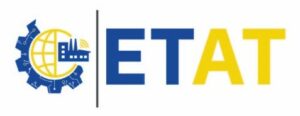

Laufzeit: 01.01.2020 – 30.09.2021
Förderprogramm: FH Intern STB/GF
Kurzbeschreibung:
Im FlipLab-Projekt arbeiten Studierende mit Lehrenden an der Konzeption und Realisierung neuer Remote-Lab-Konzepte.
Bei dem FLIPLAB-Projekt wird daran gearbeitet, die beiden Methoden – Remote Lab und flipped classroom – zu kombinieren. So wie beim flipped classroom die theoretischen Grundlagen zu Hause erarbeitet werden, kann das beim flipped lab mit den praktischen Grundlagen geschehen. Diese praktischen Grundlagen können dann in Präsenzlaborübungen vertieft werden.
Laufzeit: 01.02.2020-31.07.2023
Förderprogramm: FFG – Basisprogramm
Kurzbeschreibung: Electronic Based Systems (EBS) sind Komponenten, Geräte und Systeme mit Mikro-und Nanoelektronik sowie die dazugehörige eingebettete Software. Sie sind eine Schlüsseltechnologie (KET-key enabling technology) und bilden die Basis für eine Vielzahl an digitalisierten Produkten und Prozessen, wie autonome Fahrzeuge, personalisierte Medizin, Internet of Things oder intelligente Maschinen. Das Qualifizierungsprogramm Inno-EBS wird dazu komplementär aufgesetzt, indem zum Teil vorhandene Netzwerke der steirischen, Kärntner und des oberösterreichischen Partners genutzt werden und ein attraktives Konsortium aus 5 wissenschaftlichen und 15 Unternehmenspartnern entlang der Wertschöpfungskette EBS zusammengestellt wurde. Inno-EBS schließt eine Lücke im Angebot am Markt und konzentriert sich auf die Vermittlung von State-of-the-Art Querschnittkompetenzen in Hardware, embedded Software und Systemen. Das Programm adressiert Zielgruppen aus diesen Bereichen aber auch Generalisten im Innovationsmanagement. Im Rahmen von vier zielgruppenspezifischen Tracks wird auf die brennendsten Themen der Unternehmen in EBS eingegangen. Es werden 67 TeilnehmerInnen mit aktuellen didaktischen Methoden, wie „blended learning“ Formaten zu zertifizierten EBS SpezialistInnen ausgebildet.
Laufzeit: 2019-2022
Förderprogramm: Erasmus+: KA2 CIEGP, Capacity Building in Higher Education
Kurzbeschreibung: Dieses Projekt basiert auf der Analyse der Leitlinien für die digitale Kompetenz, die die Europäische Kommission in ihren strategischen Dokumenten und Programmen (Digitale Agenda für Europa (DAE), das DigComp-Framework, die Digital Skills and Jobs Coalition) definiert hat. So definiert das Projekt die folgenden Hauptaufgaben: Entwicklung und Förderung der Entwicklung der digitalen Kompetenz in der Ukraine durch Anpassung des Systems der digitalen Kompetenz an Lehrer und Bürger unter Berücksichtigung der in Europa vorherrschenden Tendenzen; Reform des Systems der Lehrerausbildung in der Ukraine unter Berücksichtigung der Erfahrungen mit „Best Practices“ in der digitalen Kompetenz, Anpassung der Erfahrungen mit der ukrainischen digitalen Kompetenz an die ukrainische Gesellschaft; Schaffung der National Digital Coalition of Ukraine, um die zielgerichtete Verbreitung der Ergebnisse des Projekts zu erreichen.
Weitere Informationen >>
Publications
Please visit the Research Gate and/or ORCID links for publications

https://www.researchgate.net/lab/Research-Group-myLAB-Thomas-Klinger
https://www.researchgate.net/profile/Alexander-Berndt-5
https://orcid.org/0000-0001-5912-345X
